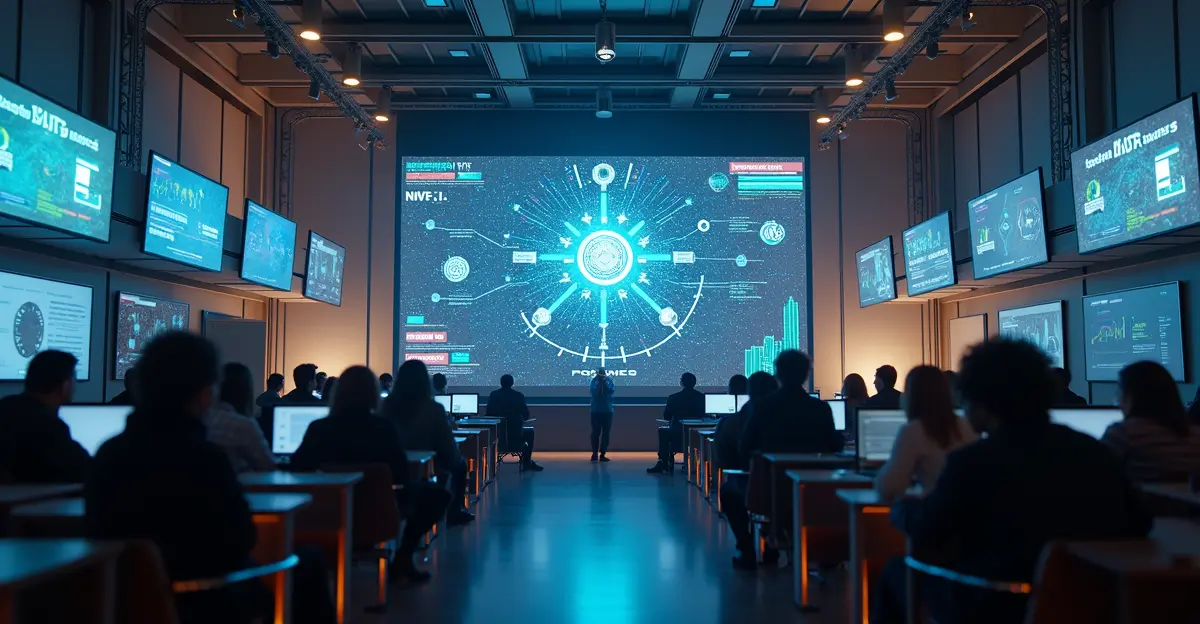NFT market faces legal challenges in 2025 over ownership models, copyright enforcement, and secondary market dynamics. Key issues include distinction between token ownership and copyright, royalty enforcement debates, and evolving regulatory frameworks.

The Changing Landscape of NFT Ownership and Copyright
The NFT market continues to evolve rapidly in 2025, but significant legal questions surrounding ownership models, copyright enforcement, and secondary market dynamics are creating both challenges and opportunities for creators, collectors, and platforms alike. As the market matures, fundamental questions about what exactly NFT ownership entails are coming to the forefront of legal discussions.
Ownership Models: Beyond the Token
One of the most persistent misconceptions in the NFT space is that purchasing an NFT automatically grants copyright ownership of the underlying digital asset. 'Buyers need to understand that NFT ownership typically means you own the token on the blockchain, not necessarily the intellectual property rights to the digital content itself,' explains intellectual property attorney Maria Rodriguez. This distinction has led to numerous legal disputes as collectors attempt to commercialize NFTs they believed they fully owned.
The legal framework is struggling to keep pace with blockchain innovation. According to legal analysis from LawDim, blockchain technology offers enhanced copyright management through decentralized ledgers that provide transparent, immutable records of ownership and provenance. However, the global nature of blockchain creates jurisdictional challenges for copyright enforcement across different legal systems.
Copyright Enforcement in a Decentralized World
Copyright infringement remains a significant concern in the NFT ecosystem. High-profile cases involving unauthorized use of celebrity images and copyrighted material have highlighted the enforcement difficulties in decentralized markets. 'The decentralized nature of NFTs complicates traditional copyright enforcement mechanisms,' notes digital rights expert Dr. James Chen. 'We're seeing platforms implement authenticity verification tools, but there's no standardized approach across the industry.'
Recent developments show that traditional copyright laws still apply to NFTs despite the blockchain technology. As detailed in TechLasi's comprehensive guide, current copyright frameworks remain enforceable in NFT markets, with the US providing strong protection under the Digital Millennium Copyright Act and the EU emphasizing creator rights. However, enforcement varies significantly across international borders.
Secondary Market Dynamics and Royalty Wars
The secondary market for NFTs has become a battleground over creator compensation. What began as a revolutionary feature providing artists with perpetual income from secondary sales has evolved into contentious debates about royalty enforcement. 'NFT royalties were supposed to be the Web3 social contract that ensured creators got paid forever,' says artist and NFT creator Sarah Johnson. 'Now we're seeing marketplaces make them optional, which fundamentally changes the economics for digital artists.'
According to Market Insiders analysis, the core issue is that while smart contracts can suggest royalty percentages, they cannot enforce them at the blockchain level. Enforcement depends entirely on marketplace compliance, leading to what industry observers call 'royalty wars' between platforms. OpenSea continues to enforce creator-set royalties, while competitors like Blur offer optional royalty payments, creating divergent incentives in the digital art economy.
Regulatory Developments and Future Outlook
Regulatory frameworks are gradually emerging to address these challenges. The EU's Markets in Crypto-Assets (MiCA) framework, effective since 2024, requires greater transparency in NFT transactions. Meanwhile, the UK's Financial Conduct Authority is exploring how existing intellectual property laws apply to NFTs. 'We're at a critical juncture where legal frameworks need to catch up with technological innovation,' states regulatory compliance specialist David Thompson. 'The industry needs comprehensive NFT-specific regulations that balance creator protection with market efficiency.'
Technical solutions are also emerging, including royalty-enforcing token standards like ERC-2981 and blocklists that prevent trading on non-compliant platforms. However, these solutions often conflict with decentralization ideals, creating tension between technological possibilities and practical enforcement.
As the NFT market continues to mature in 2025, the resolution of these legal questions will shape the future of digital ownership and creator economies. The ongoing evolution demonstrates that while blockchain technology offers new possibilities for ownership and compensation, it also requires new legal frameworks to ensure fair and sustainable ecosystems for all participants.

 Nederlands
Nederlands
 English
English
 Deutsch
Deutsch
 Français
Français
 Español
Español
 Português
Português









